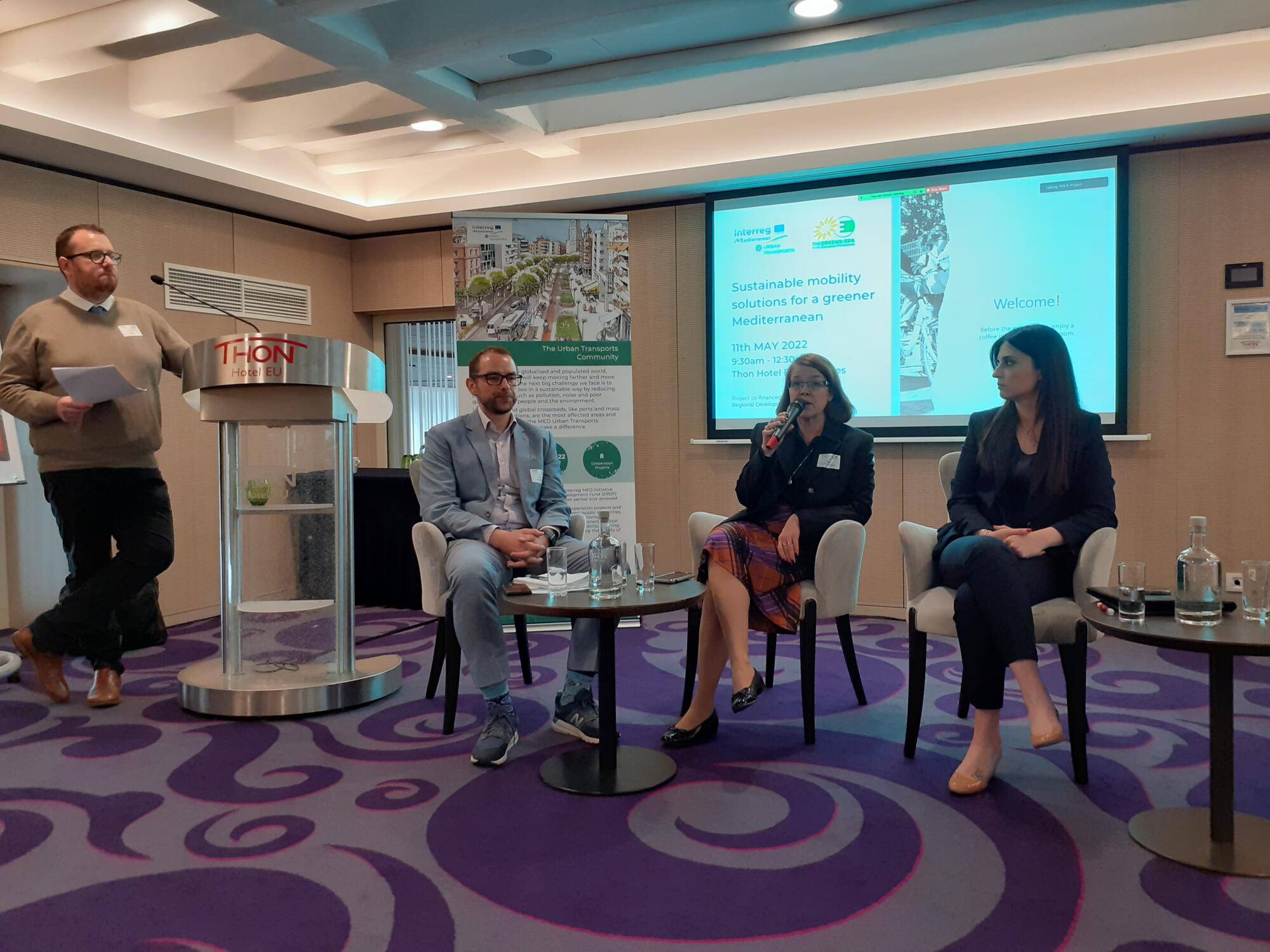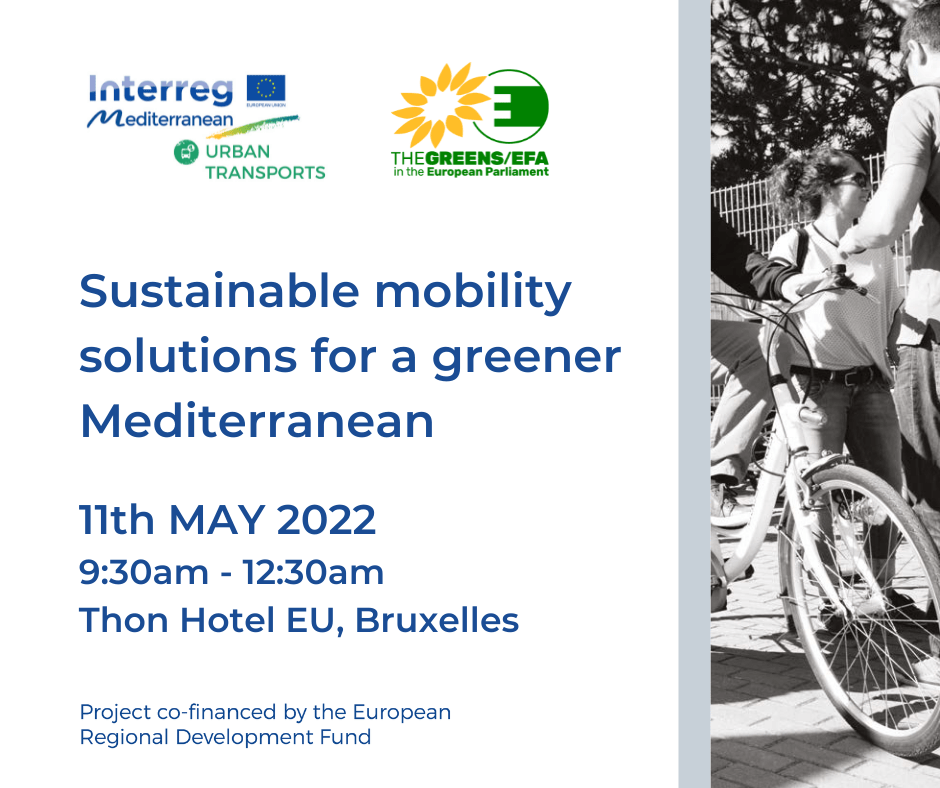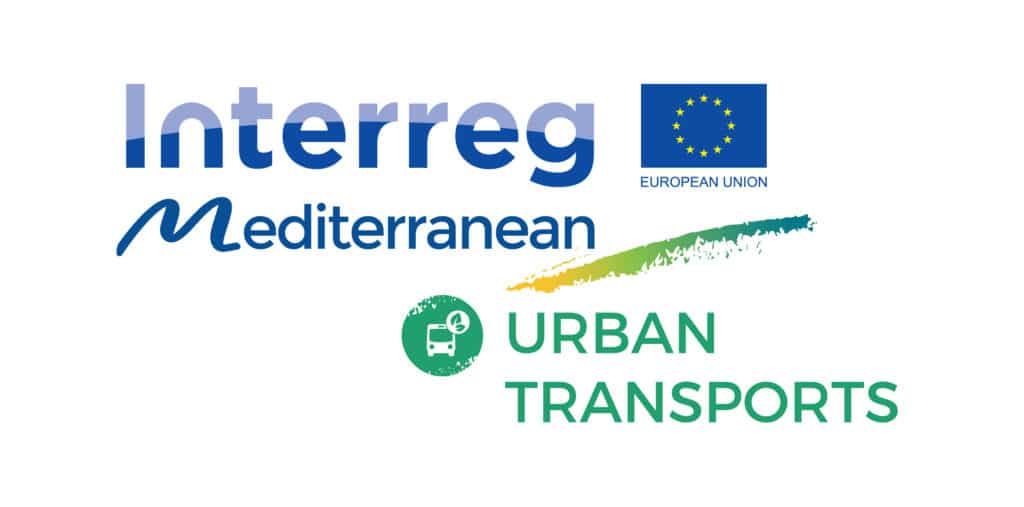Urban Transport Community successfully wraps up its first High-level Workshop in Brussels
On 11 May 2022, POLIS Network organised within its partnership with the Urban Transports Community (UTC) the first High-level Workshop of the initiative with the support of Ignazio Corrao, Member of the European Parliament (Greens/EFA) and alternate member of the TRAN Committee, and the participation of the Mayor Durrës Emiriana Sako.
The workshop, titled "Sustainable mobility solutions for a greener & better experience living and visiting the Mediterranean", took place online and in Brussels, gathering 40 participants from European institutions and organisations, as well as Mediterranean-centred representations and authorities.
Mediterranean - a challenged yet inspiring region
The event aimed at discussing with different stakeholders the main challenges that the Mediterranean faces in terms of mobility. Kicking off with the introduction of chair Ivo Cré, Director of Policy and Projects - Coordinator of Access at POLIS Network, mentioning the need for the European Union to be closer to its citizens, it seemed clear that some of the biggest upcoming challenges awaiting European Cities in the months and years to come will be, for example, the Green Deal and the Cities Mission - the latter being the bold plan aiming at making 100 cities climate neutral by 2030.
Within this frame, Mediterranean cities are somewhat additionally tested. Heavily dependant on the third sector - and in particular tourism, these cities are now not only recovering from the devastating effects of the COVID-19 pandemic, but also coming to terms with the fact that they will need to adapt their measures and policies to COVID's outcomes, all while ensuring that exponential touristic growth is supported by resilient and sustainable urban mobility systems.
Taking it from Josep Canals Molina, General Secretary of MedCities:
"Cities - and in particular MED cities - are where the battle against climate change is fought; these cities need to act together for those battles to be won."
Leading by example with their human-centred approach, Mediterranean cities and tourist destinations could inspire others in finding the right spin on how to dedicate urban space to active mobility and democratising such space by working with and for the majority - that is pedestrians, cyclists and other individuals who may not want to use private cars to live and breath a city.
Finding a voice, using a platform
It is fair to ask oneself how Mediterranean cities can find their voice and become heard. However, the answer would be incredibly straightforward: by using an EU platform, that is.
Piotr Rapacz, Coordinator of Urban Mobility at DG MOVE, presented the Commission's EU Urban Mobility Framework aimed at providing more effective support for cities and making mobility more sustainable and inclusive.
Moving from the building blocks of citizens engagement and reformed governance, the Framework brings mobility management plans centre-forward by including them in official national and European policies for the first time. These, spiced up with improved TEN-T and SUMPs and a better-harmonised scheme to improve multimodality, along with the brand new Horizon Europe funding Programme, offer multiple viable solutions to make one's voice heard.
Jill Warren, CEO of the European Cyclists' Federation, then gave us more food for thought. She indeed mentioned that European cities should first and foremost work on prioritising active mobility and in particular cycling - one of the most sustainable and healthiest transport modes and leisure. To do so, cities should embrace the Vision 2030, which would increase cycling by 50% by 2030 through stronger political support and public investment in 1000 km of additional cycling infrastructure.
Such a Vision would also boost tourism and, in particular, transnational cycling tourism (n.b. EuroVelo) - something that could really interest Mediterranean cities.
A soft spot for soft mobility
Focusing on the development of soft mobility in the Mediterranean region, CIVINET CY-EL's Christos Gioldadis introduced the first UTC Policy Brief "Promoting soft mobility in the Mediterranean: towards more sustainable mobility systems", which was published in June 2021.
Building upon experience gained through the implementation of projects related to soft mobility in Albania, Croatia, Greece, Spain and Italy, the brief highlights how such promotion requires the implementation of suitable interconnected policies at the EU, national, regional, and local levels, and puts forward policy recommendations for public authorities and stakeholders.
Above all, the brief suggests a need for local and regional authorities to foster collaboration among municipalities, adopt bottom-up design, involve local stakeholders, prompt user and non-user acceptability, encourage multimodality, and assess, measure, and ensure enforcement and surveillance. At the national and EU level, it highlights the need to regulate and provide technical specifications, coordinate, and facilitate the
implementation of soft mobility schemes, as well as provide financial support and train users and non-users and personnel.
Tourism: Mobility's Bestfriend™
Oriol Barba, Director at MedCities, then outlined the second UTC Policy Brief on tourism and mobility in the Mediterranean.
As tourism represents 10% of the EU‘s gross domestic product and provides 26 million jobs in the region, this topic is of particular interest not only for Mediterranean cities, but also for Europe overall.
As per the policy brief, tourism and mobility are interdependent phenomena; indeed, tourists use public transport and urban facilities, and mobility caters to them, particularly in tourist destinations. Therefore, they need to match their strategies and programmes to pursue an integrated common agenda.
The second Urban Transport Community Policy Brief sets the basis for building this common agenda by identifying the main trends, challenges and goals regarding tourism mobility in Euro-Mediterranean regions and urban areas. In particular, it highlights the importance of promoting the competitiveness of Mediterranean destinations not only in terms of prices, but also - and mostly - on quality and respect for the environment.


